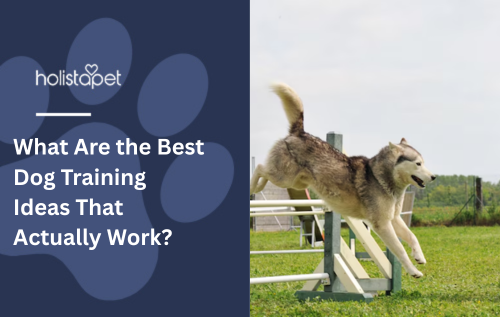Training your dog can be a fun and rewarding experience, but sometimes it’s hard to know where to start or which techniques will bring the best results. Whether you have a lively puppy or a mature dog, discovering effective dog training ideas can help you build a strong bond and encourage good behavior. In this post, we’ll explore practical, easy-to-follow dog training ideas that anyone can implement at home!
 Effective Dog Training Ideas You Can Try Today
Effective Dog Training Ideas You Can Try Today
1. Positive Reinforcement
Reward your dog with treats, praise, or play whenever they follow a command or behave well. This encourages them to repeat good behavior.
2. Consistency is Key
Use the same words and gestures for commands every time. Consistency helps your dog understand what you expect.
3. Short, Frequent Sessions
Dogs learn best with short training sessions (5-10 minutes), repeated several times a day. This keeps your dog engaged without overwhelming them.
4. Clicker Training
Use a clicker to mark the exact moment your dog performs a desired behavior, followed by a reward. This helps dogs quickly associate the behavior with positive outcomes.
5. Socialization
Expose your dog to different people, environments, and other dogs in a controlled way to help them become well-rounded and confident.
6. Crate Training
Introduce your dog to a crate as a safe and comfortable space. Crate training can help with housebreaking and prevent destructive behaviors.
7. Teach Basic Commands First
Focus on “sit,” “stay,” “come,” and “leave it” before moving on to more complex tricks or behaviors.
8. Use Toys and Games
Incorporate toys or games like fetch or hide-and-seek as part of training. It makes learning fun and builds your dog’s focus.
 Frequently Asked Questions
Frequently Asked Questions
Q1: How long does it take to train a dog?
Training varies by dog and consistency but expect to see basic obedience in a few weeks with daily practice.
Q2: What if my dog doesn’t respond to training?
Be patient and consistent. Sometimes a professional trainer or behaviorist can provide personalized help.
Q3: Can I train an older dog?
Yes! Dogs of any age can learn new behaviors with the right approach and patience.
Q4: Should I punish bad behavior?
Avoid harsh punishment; instead, redirect the dog’s behavior and reward positive actions to build trust.
Q5: What are some good treats for training?
Small, soft, and tasty treats work best so your dog stays motivated without getting full quickly.
Final Thoughts
Training your dog doesn’t have to be a stressful chore. With the right dog training ideas like positive reinforcement, consistency, and short sessions, you can create a happy, well-behaved companion. Remember, every dog learns at their own pace, so patience and encouragement go a long way. Start small, stay consistent, and celebrate every success. Your furry friend will thank you with wagging tails and joyful companionship!
Helpful Notes:
-
Always keep training sessions upbeat and positive.
-
Avoid distractions when introducing new commands.
-
Use clear, calm voice tones for better communication.
-
Monitor your dog’s body language to gauge comfort and engagement.


 CBD Oil for Dogs - Fast Acting
CBD Oil for Dogs - Fast Acting
 Chicken Flavored CBD Oil For Dogs - Easy Dose
Chicken Flavored CBD Oil For Dogs - Easy Dose
 Salmon Flavored CBD Oil For Dogs - Highly Rated
Salmon Flavored CBD Oil For Dogs - Highly Rated
 CBG Oil for Dogs and Cats - Loved by Thousands
CBG Oil for Dogs and Cats - Loved by Thousands





Leave a comment
All comments are moderated before being published.
This site is protected by hCaptcha and the hCaptcha Privacy Policy and Terms of Service apply.